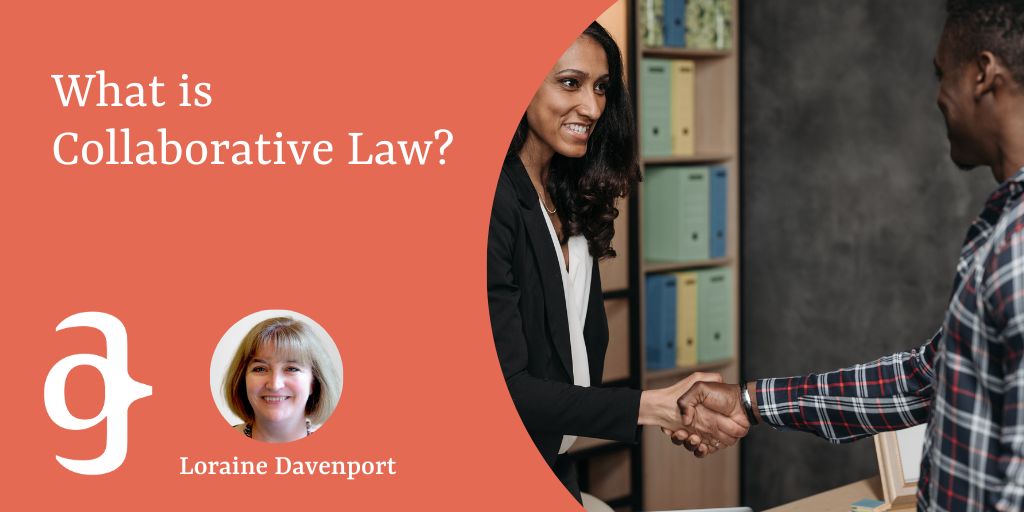What is collaborative law?

Everyone has heard a litigation horror story which invariably includes exorbitant costs, unreasonable conduct and long delays all ending with a judgement that is invariably not what either wanted.
Collaborative law is an approach which sees each party in a separation appoint a collaboratively trained lawyer. The clients and the lawyers then work together to reach a settlement in a series of roundtable meetings. The lawyers, having signed the agreement, have a dual role to act in the best interests of their client to advise and assist through the process, whilst at the same time assisting the “group” in finding a solution that is constructive. There are typically between three and five meetings.
There are many similarities between the collaborative process and the litigation process. This ensures that the process is as thorough and complete as a traditional process and offers the same level of protection as an order made by a court;
Similarities:
| Collaborative process | Litigation process |
|
Full and frank disclosure. |
Full and frank disclosure. |
|
Advice to settlement options throughout. |
Advice to settlement options throughout. |
|
Experts for more complex issues such as pensions. |
Experts for more complex issues such as pensions. |
|
An agreement can be formalised by a consent order. |
An agreement can be formalised by a consent order. |
There are significant differences including the following;
| Collaborative process | Litigation process |
|
Amicable respectful |
Adversarial |
| Tailored timetable |
Court imposed timetable |
|
The separated couple write their own agenda and retain control over the process and outcome. |
Standard directions
|
|
Comfortable forum at an agreed venue for agreed time. The meetings are a constructive, less confrontational forum.
|
Court room |
|
The process promotes better post-separation, communication and cooperation which is especially important where there are children.
|
There is considerable research as to the damage caused to children by conflict and also the increased risk of that post litigation poor communication and further litigation.
|
| Greater flexibility as outcomes are more tailored
|
Court-imposed orders. |
The Process
The first step is arranging a meeting with a collaboratively trained lawyer who will assess whether they feel that a collaborative process is appropriate and if it is write to your partner introducing them to the process and asking that they see a collaborative lawyer too. Once that lawyer has assessed that this is the best process for their client too, then there is usually a conversation between lawyers before the first meeting. During the conversation the lawyers will discuss whether or not collaborative law is appropriate and also discuss the agenda for the first meeting and the concerns and priorities that the clients may have. A first meeting is then set up at which a collaborative agreement is signed. Most collaborative processes are completed within three to five meetings.
Alongside agreeing a roundtable approach that avoids litigation, the lawyers are also agreeing to work collaboratively and constructively to try and find a solution.
Who can use collaborative law?
There are situations where collaborative law may not be suitable and this is mostly where there has been some domestic abuse or a power imbalance within the relationship. Collaborative law is very adaptive. There needs to be a willingness on both sides to provide full and frank disclosure and to work towards a fair solution.
Why Anthony Gold?
Anthony Gold Solicitors LLP have a number of collaboratively qualified lawyers who can assist you through the process. Our family team are leaders in all types of dispute resolution and can guide you towards the right process.
Please contact us on 020 7940 4060 or email us at mail@anthonygold.co.uk.
In addition, if you wish to discuss further any of the issues raised in this article our experienced Family Law solicitors are always here to help. Book a free 20-minute consultation now
* Disclaimer: The information on the Anthony Gold website is for general information only and reflects the position at the date of publication. It does not constitute legal advice and should not be treated as such. It is provided without any representations or warranties, express or implied.*
No comments